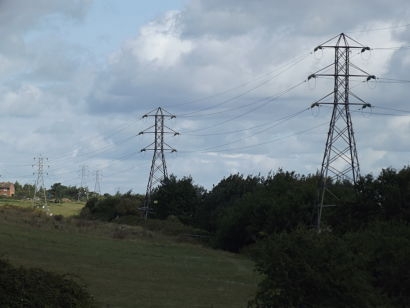
The STA also set out ten key recommendations to address industry concerns and deliver on Net Zero, as follows:
Government must provide an updated and clear Statement of Policy and Strategy for Ofgem, in line with the UK’s legally binding net zero targets
An 18-month framework is insufficient to provide the overarching, holistic approach toward decarbonisation that is needed. Ofgem must outline a clear, long-term strategy towards their role in achieving net zero 2050 with further detail on implementation
Ofgem must outline how the progress of the Decarbonisation Programme will be tracked and monitored, with opportunity for stakeholder feedback.
Ofgem must ensure that all forms of renewable generation and low carbon flexibility are sufficiently incentivised through the next network price controls and regulatory framework, in line with required deployment rates to achieve net zero and that grid connections are not a prohibitive barrier to new renewables or storage deployment
Ofgem should endeavour to align reform processes where possible. This did not occur with the Targeted Charging Review and Access and Forward-Looking Charges SCR. Prospects of delivering new, subsidy-free solar projects have been damaged by regulatory instability and failure to align these reforms.
All modelled scenarios put forward by Ofgem for industry consultation should be compliant with relevant net-zero legislation, and that potential outcomes that would jeopardise achievement of net zero should be removed from further consideration.
Ofgem must facilitate the continued commercial operation of existing renewable assets connected to the grid, recognising repowered assets as the most affordable clean energy generation, including through reform to network curtailment.
As the administrator to environmental and social schemes, Ofgem must facilitate the continued commercial operation of existing renewable assets in receipt of ROCs and FITs through ensuring a fair, transparent and prompt audit process.
Ofgem must continue to facilitate innovation in its regulatory framework
The STA encourages Ofgem to actively work with the Department for Business, Energy and Industrial Strategy (BEIS) and the solar industry to develop a follow up to the RHI which delivers deployment of solar heat and power generation at a scale which in line with the UK’s legally binding carbon reduction commitment.
“Whilst Ofgem have begun to scratch the surface of how it can support the transition to Net Zero, the action plan has several omissions relating to the renewables and energy storage sector that are mission critical to accelerating the deployment of solar” said STA Policy Manager Cameron Witten. “It is essential that Ofgem carefully considers how it will evolve Britain’s power networks to ensure solar and other decentralised low-carbon technologies can fulfil their part in decarbonising the energy sector, by tackling significant barriers, including grid connection difficulties, generation constraints and disproportionate network charging.”
For months the STA has been echoing calls by the likes of the National Infrastructure Commission and the Confederation of British Industry for Ofgem’s remit to be realigned to the UK’s legally-binding Net Zero target.
In its response, the STA has highlighted that there is insufficient recognition for the challenges involved in gaining a grid connection for onshore renewables; the regulatory instability caused by reforms such as the Targeted Charging Review; and that Government must provide an updated and clear Statement of Policy and Strategy for Ofgem, in line with the UK’s legally binding net zero targets.
For additional information:

